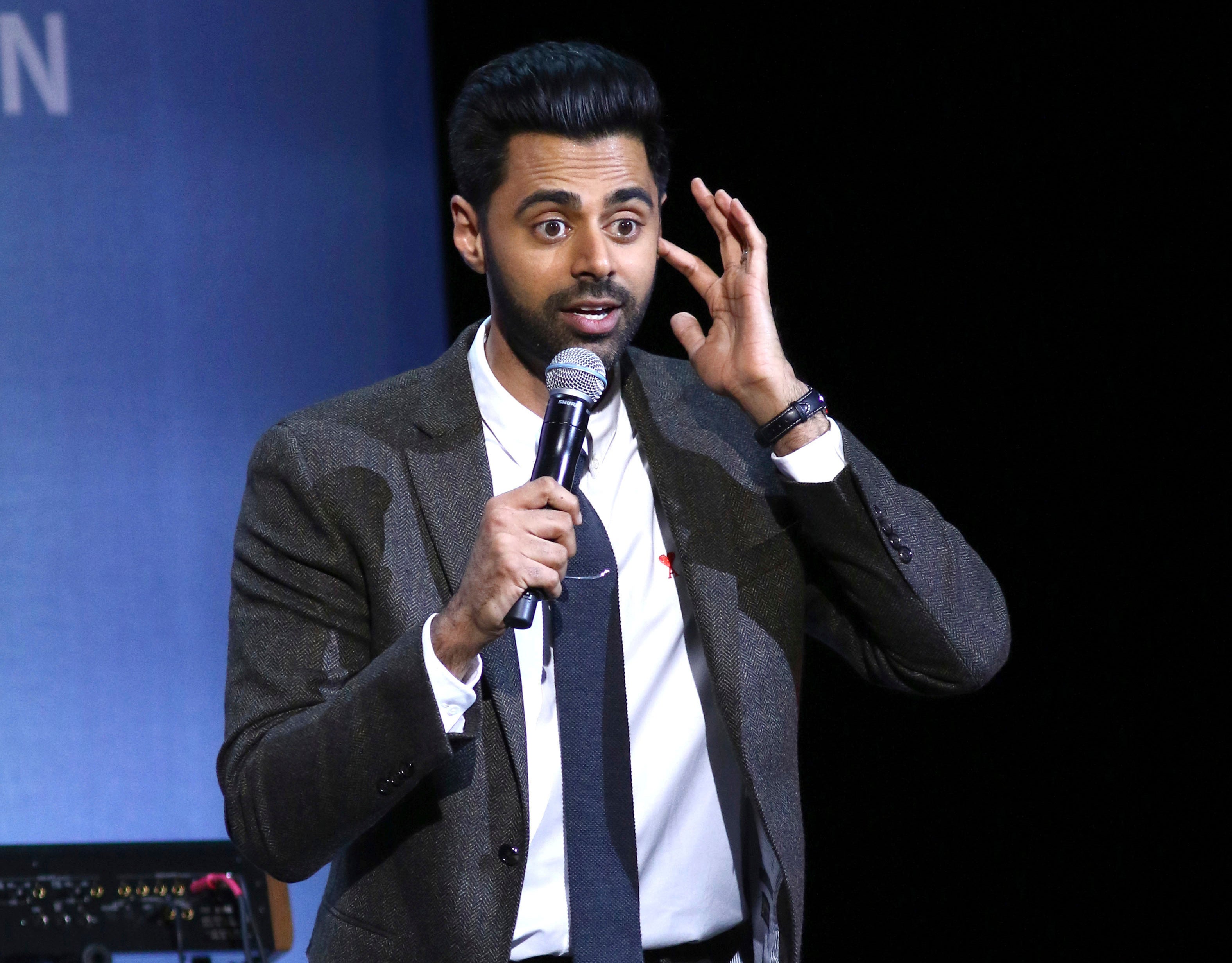Hasan Minhaj: Comedian denies using ‘fake racism’ to advance career, ‘I’m not a psycho’
Comedian admitted to exaggerating certain details in his stand-up routines in a September New Yorker profile

Your support helps us to tell the story
From reproductive rights to climate change to Big Tech, The Independent is on the ground when the story is developing. Whether it's investigating the financials of Elon Musk's pro-Trump PAC or producing our latest documentary, 'The A Word', which shines a light on the American women fighting for reproductive rights, we know how important it is to parse out the facts from the messaging.
At such a critical moment in US history, we need reporters on the ground. Your donation allows us to keep sending journalists to speak to both sides of the story.
The Independent is trusted by Americans across the entire political spectrum. And unlike many other quality news outlets, we choose not to lock Americans out of our reporting and analysis with paywalls. We believe quality journalism should be available to everyone, paid for by those who can afford it.
Your support makes all the difference.US comedian Hasan Minhaj has hit out at what he described as a “needlessly misleading” magazine article that scrutinised anecdotes about race and religion in his stand-up comedy routines.
Minhaj, 38, is an Emmy Award-winning comedian who first rose to fame while serving as senior correspondent on The Daily Show, then when his debut comedy special Homecoming King was released on Netflix in 2017.
Last month, he was the subject of a profile piece in The New Yorker titled “Hasan Minhaj’s emotional truths”, which detailed alleged instances where he had embellished or fabricated stories used in his comedy specials. The article has sparked a debate surrounding ethics in comedy and prompted Minhaj to issue a video rebuttal about the claims.
“With everything that’s happening in the world, I’m aware even talking about this now feels so trivial,” the comedian said in the 20-minute clip shared with The Hollywood Reporter. “But being accused of ‘faking racism’ is not trivial. It’s very serious, and it demands an explanation.
“To everyone who read that article, I want to answer the biggest question that’s probably on your mind: Is Hasan Minhaj secretly a psycho? Underneath all that pomp, is Hasan Minhaj just a con artist who uses fake racism and Islamophobia to advance his career? Because after reading that article, I would also think that.”
Continuing his statement, Minhaj accused The New Yorker of “misrepresenting his life story” through “omissions and factual errors”.
“The reason I feel horrible is because I’m not a psycho. But this New Yorker article definitely made me look like one,” he said. “It was so needlessly misleading, not just about my stand-up, but also about me as a person. The truth is, racism, FBI surveillance and the threats to my family happened. And I said this on the record.”
He added: “I just want to say to anyone who felt betrayed or hurt by my stand-up, I am sorry. I made artistic choices to express myself and drive home larger issues affecting me and my community, and I feel horrible that I let people down.”

One of the anecdotes raised in The New Yorker article, which featured in Homecoming King, recalled the time Minhaj’s prom date’s white parents forbade her from going with him, because they didn’t want her in prom pictures with “a brown boy”.
In the Netflix special, Minhaj says he learnt this when he turned up at their house to pick up his date, whom he gave the pseudonym Bethany Reed.
“Bethany’s mom really did say that, it was just a few days before prom,” Minhaj said in his video. “I created the doorstep scene to drop the audience into the feeling of that moment, which I told the reporter.”
In the video, he also shared emails and text exchanges between him and Bethany, which he said he also sent to the magazine, in which Bethany thanks him for protecting her and her family. The New Yorker article reported that Minhaj’s anecdote in Homecoming King led to her being doxxed.
“Hasan Minhaj confirms in this video that he selectively presents information and embellishes to make a point: exactly what was reported,” a New Yorker spokesperson said in a statement to The Independent.
“Our piece “is based on interviews with more than 20 people, including former Patriot Act and Daily Show staffers; members of Minhaj’s security team; and people who have been the subject of his standup work, including the former FBI informant “Brother Eric” and the woman at the centre of his prom-rejection story. We stand by our story.”